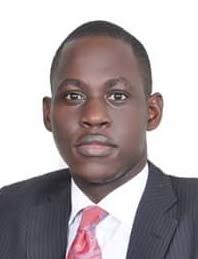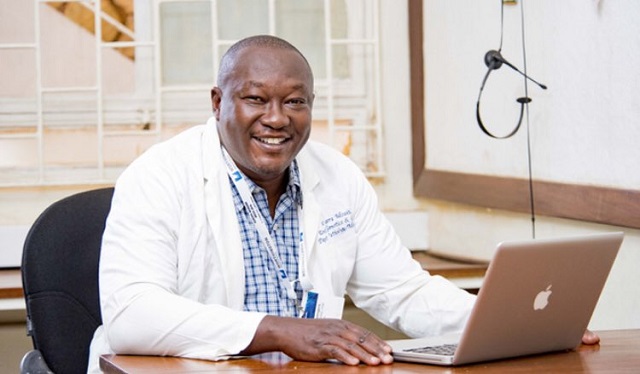By Jonathan Mwesigwa S.
Can there really be anything interesting to say to Ugandans about their right to participate in national development with the hope that they will take it in good stride, or one must shout at the top of one’s lungs, first, in order to underscore this point? This thought crossed my mind as Dr. Roselyn Karugonjo-Segawa, Chairperson of the Leadership Code Tribunal and formerly Dean of the Law school at the Uganda Christian University alias UCU, made her presentation via a webinar organized by the Africa Policy Centre (APC)—UCU’s think tank—on 29 October 2020.
In the pursuit of our ‘national development’ we have more often than not found ourselves at the crossroads in regard to the outstanding need to not only empower our people to demand and enjoy this right as enshrined in both domestic and international law, but also to actively rather than passively own, manage and control the course of their development.
Dr. Segawa, basing on the National Development Plans I and II, made several observations in this regard stressing that: the express legal provisions notwithstanding, a great majority of our people were, in sum, completely ignorant of this right especially because governments, politicians, public policy experts, donors, and partners inter alia made it appear as though it were a buzz word for international financial institutions (such as the World Bank and the International Monetary Fund), development experts, and civil society organisations; whereas not.
Under Article 38(1) of the Constitution of the Republic of Uganda, 1995:“Every Uganda citizen has the right to participate in the affairs of government, individually or through his representatives in accordance with [the] law.” It is emphasized under Clause (2) of the same Article that: “Every Ugandan has a right to participate in peaceful activities to influence the policies of government through civic organisations.”
It is also critically important to note that it is the unmistakable duty of the State, respectively under Objectives IX and X of the National Objectives and Directive Principles of State Policy, to “…facilitate rapid and equitable development…” as well as to “…take all necessary steps to involve the people in the formulation and implementation of development plans and programmes which affect them.”
What is unsurprising, though, is that the Government of Uganda long abdicated this duty and according to Dr. Joseph Muvawala, the Executive Director of the National Planning Authority, there is plentiful indication within the various Ugandan communities to back this position. He, for instance, said that some new tarmac roads in rural Busoga are used by the locals to dry their cassava. Conversely, some new classrooms built in rural Karamoja are used to rear goats. While the new roads and classrooms may portend signs of infrastructural development in those areas, they are ‘misused’ because the ‘experts’ did not involve the locals during the planning to know and understand their pressing needs.
Dr. Segawa, equally, recalled an instance where development partners keen to alleviate the water challenges in a certain village, quickly set up a borehole without engaging the locals, first. When a study was conducted to inquire into its under-utilization, it was discovered that the majority of its main prospective users, the women, preferred drawing water from a village well which was a farther distance away because besides escaping their husbands’ watchful eyes, they could also have sufficient time to ‘catch-up’ with their friends!
There are, indeed, many lessons to take home if government, its planners and development partners are to hit their stride.
Since the right to participate in development is not a government favour, inclusive planning processes are not only mandatory but also critical for meaningful national development for they are a testimony of how good the plans are. Government, therefore, ought to demonstrate sufficient political will, firstly, by enacting relevant laws such as the Participation Act; secondly, by buttressing the individual capacities of its planners with an enabling environment for strong rather than weak institutions; and thirdly, by increasing funding for the NPA. Ultimately, the failed government structures will be resuscitated.
Planning is about problem solving. It should, therefore, be people-centred so as to stem mismatched funding of their development needs. We, for heaven’s sake, cannot pretend to know their problems better than them.
Generally speaking, planning is not a knowledge area hence the tendency of a disconnect in ideas between academicians and practitioners, especially. We would save a lot of time consumed in arguments and counter-arguments by minding the quality of the participants, i.e., who and how many to consult; and most importantly, by listening rather than talking more. In any case, economies seldom exist for the experts. They, instead, exist for the people. According to Dr. Muvawala, this lesson is key, especially following the COVID-19 pandemic experience. “When you destabilize the way people live,” he warns “you have no economies and consequently, no production!”
Government is also implored to initiate linkages between public policy and universities, other institutions of higher learning, and civil society organisations (CSOs). Given their outreach function, universities must deliberately participate in policy research and discussions. On the other hand, CSOs need not be seen as an enemy of the state, but rather as a partner. To this extent, the NGO law ought to be amended to align what the CSOs must do in the NDPs.
Lastly, government should abandon its current policy of over-districtization in favour of federalism or any other power-sharing/governance system that will not only encourage real and meaningful participation of both the individual and the community in national development, but also control the financial haemorrhage caused by large administrative expenditures.
The writer is a lawyer.
jm********@***il.com | @JMwesigwa_S



